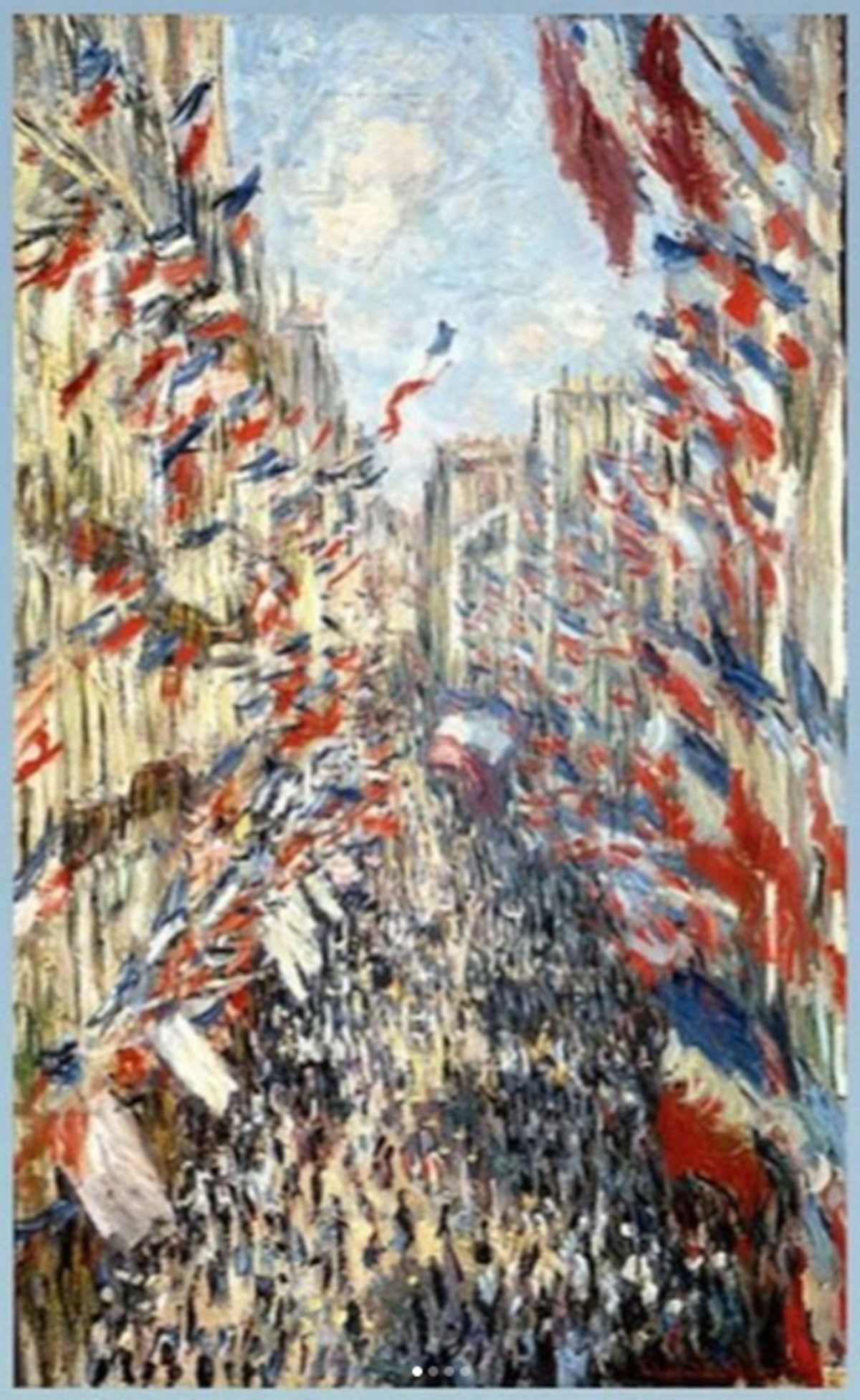In France, Bastille Day commemorates the storming of the Bastille Prison in 1789 by a mob of Parisians in the opening stages of the French revolution. Since then, the day is a national holiday of celebration, including dancing in the streets, as Joe and Sophie Parker experienced it on July 14, 1939 in this excerpt from Chapter 23 of Dare Not Tell:
***
Joe and Sophie arrived at the Gare du Nord in Paris on July 14.
The wrought iron rafters and dusty glass roof spanning a multitude of tracks were the same. The crush of arriving and departing passengers was the same. Joe blinked, and brightly dressed women, over-excited children, and linen-suited men swarmed the platform, not khaki-clad soldiers. Sophie was by his side. Fred, Sid, Davy, and Geordie were nowhere to be seen.
The masses jostling to get to a good spot to watch pomp of the Bastille Day parade on the Champs Elysée were overwhelming. Sophie tugged his hand, and he willingly followed her away from the crowds and toward the River Seine instead.
Music and laughter beckoned from around corners along their way. They found parties where everyone in the neighborhood was out, dressed in their best. Old couples, young couples, and every age in between danced in the street and toasted the day, France, and Paris.
At Sophie’s urging, Joe stuffed a generous number of francs in the barrel placed outside a pompier station and they shook hands with the firefighters. At another party, they were invited, “Venez, Madame! Asseyez-vous, Monsieur!” to share a communal dinner at tables lining the length of the street.
Sophie sang the Marseillaise, danced with him and anyone else who asked, and kissed cheeks with complete strangers whose normal reserve was put aside on this special day, the anniversary of French independence from the monarchy.
Her French was almost as fluent as it had been when she left France in 1918. His was nearly non-existent – he had studied Latin in school – but his wartime French came back in snippets throughout the day. Merci and s’il vous plaît and bon jour and pardonnez-moi were the first to bubble up in his memory.
Once twilight fell and the streetlights flickered on, Joe was pleasantly full and a little tipsy and he discovered he understood far more French than he thought he did. An ancient veteran, medals crowded and clicking on his dusty black coat, hobbled over and pumped their hands when he discovered they were Australian and American.
He listened with amusement when the old man told Sophie she was très belle and asked her for a Bastille Day kiss. She pecked him on both grizzled cheeks and said, “Et maintenant, mon mari, qui est très beau et qui j’adore, m’attende.”
“You have a husband who’s very handsome?” he asked when she sidled up to him. “And you adore him?”
“Absolument!” she exclaimed, linking her arm with his as they headed to the Pont Neuf bridge to watch the fireworks over the river.
Whiffs of cordite drifted on the evening breeze. Explosions percussed the air. Firecrackers staccatoed below the bridge.
Long-buried memories – Fromelles, Bullecourt, Polygon Wood, Villers-Bret, Saint Quentin Canal – surged into his consciousness.
Joe reacted instinctively, pulling Sophie close, gauging which weapon – pistol, grenade, knife – he could reach to protect her.
Then appreciative oohs and ahhs, not pained groans, filtered through his scrambled thoughts.
Dozens of affectionate couples, not uniformed soldiers, surrounded them on the bridge. Fireworks, not shell bursts, bathed faces lifted to the glowing sky.
Then Sophie leaned over the railing to wave at a passing barge crammed with boisterous revelers, her movement and scent grounding him firmly in the present. Again he reacted instinctively, nuzzling her neck, holding her even more closely – things he would never do in public at home.
***
© 2021, 2025 Elaine Schroller
To read the rest of the story, see https://elaineschroller.com/books/dare-not-tell-a-wwi-historical-novel-of-romance-secrets-and-redemption
The painting is 'Rue Montorgueil, Paris, Festival of 30 June 1878' by Claude Monet.
